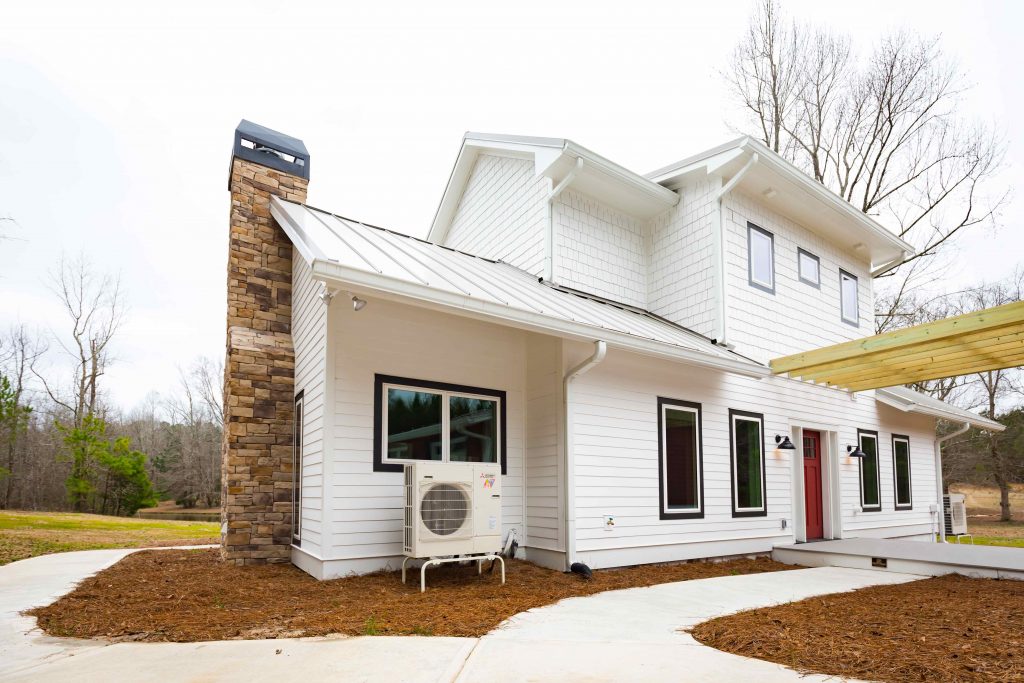When Andy Frank moved to Stamford in January, he acquired an older home that he quickly discovered was not the most energy-efficient residence. He then assigned himself to be a customer of the business he founded in 2012: Sealed, which modernizes homes that prove to be too hot during the summer and too cold in the winter.

“We invest in and coordinate the process of installing home energy retrofits,” Frank explained. “That’s typically weatherization, as well as heat pumps, which are efficient electric heating and cooling systems.”
Sealed has primarily focused on the New York City and New Jersey markets before Frank”™s personal relocation encouraged him to switch to Connecticut. One of the concerns he quickly recognized within Connecticut involved the state”™s electric rates, which are among the highest on the East Coast.
“Historically, electric heating has been associated with baseboard heat, which is not efficient and is very, very expensive,” he said. “Essentially, it is using electricity to heat up coils in your house to keep you warm.”
Electric heat pumps, he observed, take a different approach by moving heat rather than creating warmth.
“With any traditional heating system ”” whether it’s electric baseboard or a gas or oil boiler or furnace ”” you’re basically creating combustion,” he explained. “You’re essentially lighting things on fire in your basement. Heat pumps move the heat that’s available outside to the inside.
“Even on a very cold day, they’re still hot air that’s outside,” he continued. “Heat pumps use refrigerants to attract that air and bring it inside. It’s much more efficient because you don’t have to actually create the heat — you just have to move it.”
Despite its name, Frank added, electric heat pumps also handle cooling needs, which is another challenge in many older Connecticut homes ”” including Frank”™s, which lacks central air conditioning.
“What’s great is you don’t need ductwork,” he said. “Most homes in New England and in Connecticut, in particular, don’t have ductwork because they don’t have central air conditioning. You can install these systems in individual rooms without having to install ductwork.”
With its installations customized for each property, Sealed can cover up to the full costs of the upgrades. After that work is completed, the company reviews the homeowner”™s actual energy use each month from the utility; the Sealed bill is based on the size of the energy reduction recorded each month.

Frank admitted that Sealed is coming into a market where electric heat pumps are not ubiquitous: his company”™s research found 51% of Connecticut homeowners heat their residences with oil, compared to 22% in New York and 24% in Massachusetts.
Fairfield County has the lowest percentage of oil-heating homeowners at 41%, with 17% running their home HVAC systems on electricity, while neighboring Litchfield and New Haven counties both have a 64% share of homeowners relying on oil heat.
Frank said the higher percentage of oil-heated homes in Connecticut was due to residents not being able to connect to a gas line, thus having to fall back on another heating system. But he cautioned that oil heating could turn out to be a liability for homeowners when they plan to sell their properties.
“Historically, people didn’t really think it was a big deal, but there’s a lot more awareness now,” he said. “Most of the houses that we looked at were heated by oil and the one we happened to buy is heated by gas, and that was something that really dissuaded us from bidding on a few homes.
“You don’t want to buy a home and find out that you have a million-dollar environmental liability sitting there, right?”






















